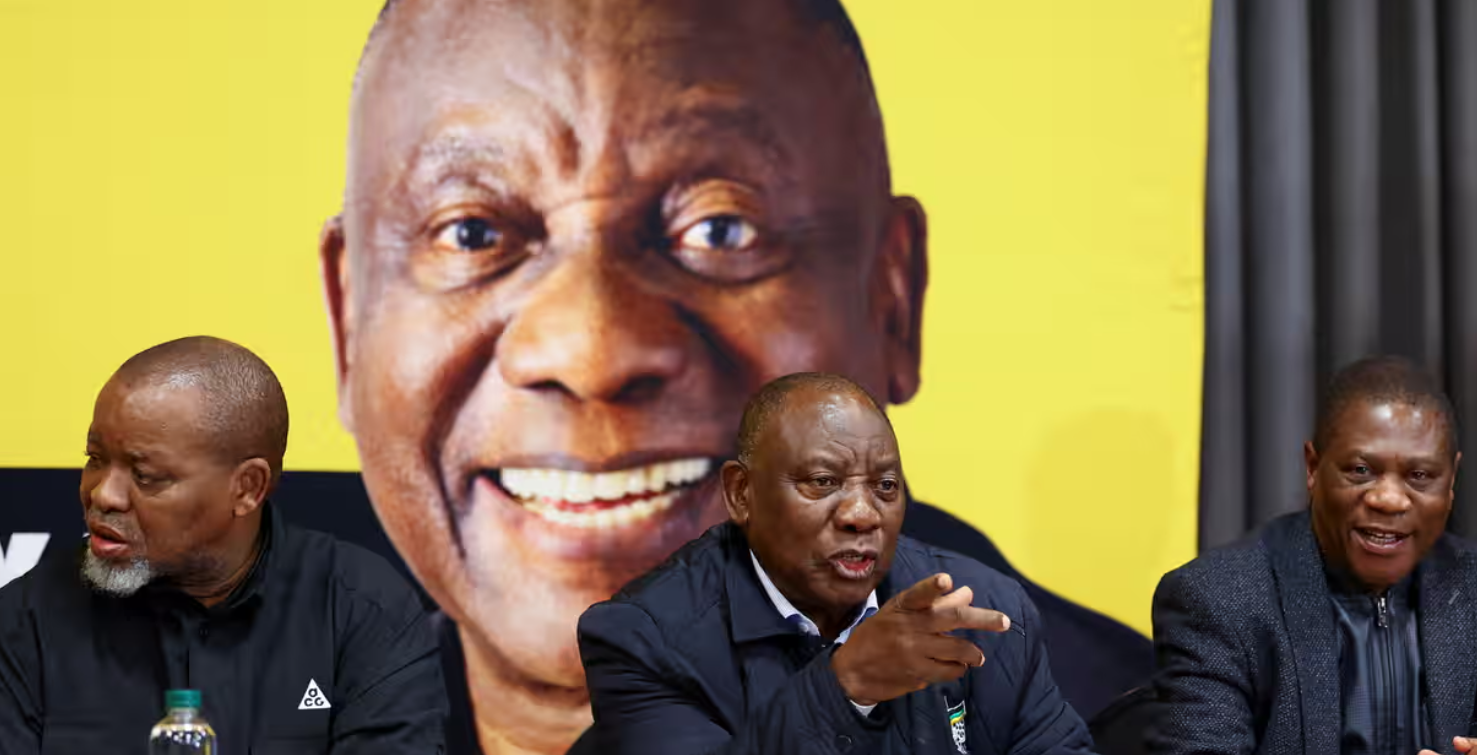A combination of cautious optimism and deep cynicism characterizes the electorate’s views as the main political parties in South Africa persist in their coalition negotiations. The African National Congress (ANC) is confronted with the formidable challenge of establishing a coalition following its first loss of legislative majority since 1994. After receiving just 40.2% of the vote in the May 29 elections, the African National Congress (ANC) must now form coalitions with other parties in order to meet the Friday deadline for the parliament to choose the president of the country.
In a move reminiscent of the 1994–1996 coalition era, when the ANC worked with the National Party—which had ruled during apartheid—and the Inkatha Freedom Party—led by Zulu nationalist Mangosuthu Buthelezi—the current president, Cyril Ramaphosa, has suggested a unity government.
Discussions between the ANC and other groups, such as the DA and the EFF, have been ongoing since the elections. Nevertheless, ideological differences hamper these conversations. Despite their animosity for each other, the DA and EFF have made it clear that they will not work together. In the meantime, former president Jacob Zuma’s newly created uMkhonto weSizwe (MK) party has made it clear that it would not join with the ANC under Ramaphosa’s leadership. Using allegations of voting irregularities as justification, MK went so far as to approach the highest court in South Africa on Tuesday in an effort to suspend the parliamentary proceedings. After other major parties recognized the results, the election commission defended them.
An ANC-DA partnership would be preferred by Benson Dube, a 47-year-old driving instructor and ANC member from Johannesburg. As far as ideology is concerned, the DA is poles apart from the ANC. “But the MK and the EFF—those guys are ex-ANC members, so it’s still the same thing,” he said. Recognizing the value of diversity, Dube thinks the DA may offer fresh perspectives. “We need to unite as a nation, not to be divided along racial lines,” he continued.
On the flip side, many Black voters view the DA with suspicion because of the widespread belief that he or she favors white interests. Claiming their party is multi-racial, DA leaders deny the allegations. “Cape Town, they’re in government… they only work in the suburbs,” Silas Radzilani, a 46-year-old tree surgeon, said, expressing his frustration. You visit Khayelitsha, the township, and they do nothing. The long-standing support of Radzilani would be abruptly severed if the ANC allied with the DA, as he made clear. He proposes a cooperation between the ANC and the EFF, arguing that their ideologies are similar.
In order to address urgent policy matters, the ANC’s ideal coalition should not include more than three parties, according to TK Pooe, a senior lecturer at the School of Governance at the University of the Witwatersrand. It will be more difficult to resolve issues and for parties to claim electoral successes if there are more actors in this partnership, Pooe explained.
Before the election, 45% of voters were in favor of a coalition administration, 28% were against it, and 23% were indifferent, according to a poll by Afrobarometer and the Institute for Justice and Reconciliation. Voters’ hopes for a unified national administration have significantly diminished since the election. An apprehensive Lynette, a 62-year-old DA voter, said, “It’s going to work for a few months and then it’s not going to work.” “They have to go into coalition with someone, to have some say,” she emphasized, highlighting the DA’s need to engage in coalition building in order to exert influence over government. Referring to the relative success in service delivery and crime reduction in the Western Cape, which is ruled by the DA, Lynette also emphasized her desire for these things.
People are becoming more and more disillusioned with politics and public institutions as the coalition discussions progress. According to Ebrahim Fakir, an analyst at the Electoral Institute for Sustainable Democracy in Africa, a substantial drop in faith in public institutions—from 66% in the 2019 elections to 58.6%—is responsible for the precipitous drop in voter participation. “In my opinion, lower voter turnout is driven by people’s major mistrust in public institutions,” Fakir said.
In light of the complexity and challenges that lie ahead for South Africa’s political environment, the lengthy negotiations to establish a stable administration are anticipated to continue beyond Friday, even though the parliamentary vote for the president is scheduled for that day.



















